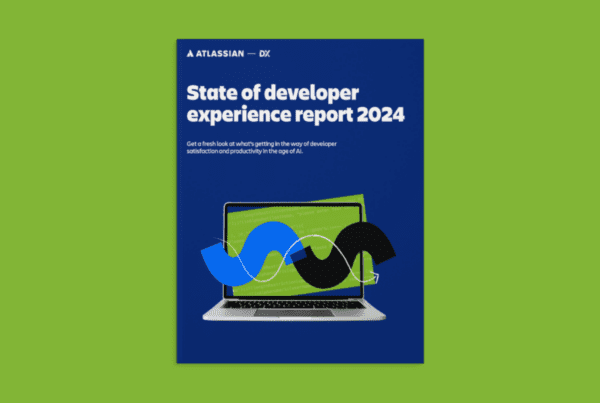It’s undeniable that there are many benefits of great work culture, although they can be difficult to pin down as each organization has its own unique mission, history, and personality. Albeit extensive, it’s almost impossible to create a ‘one size fits all’ list.
A strong team is the driving force of success. In the early days, attracting talented individuals and aligning them all with your company’s ideals is crucial. But just as important as finding a great team is holding onto that talent. There is no point in onboarding a team of great people to just lose them around the corner.
Almost 40% of job hunters say that a “positive working culture” matters to them, so nurture one, and shout about it.
According to PwC’s 2021 Global Culture Survey, 72% of business leaders say that culture helps successful business initiatives, and 67% argue that culture is more important than strategy and operations.
Providing a great working culture and an environment, whether it’s remote, hybrid, or in-person, that staff genuinely want to be part of will make them think twice about looking elsewhere. Being a great place to work is a powerful tool for plucky young companies competing with more established businesses with the capital to offer bigger salaries. It boosts morale, productivity and, perhaps most importantly, builds trust. All of this naturally leads to longer, more fruitful tenures.
Become unbeatable
Today’s startups come in all shapes and sizes. Businesses born in the pandemic may have continued with remote working, transitioned to hybrid, or maybe back in office right now. Almost 40% of people now work from home at least once a week, and as the demand grows, startups will have to adapt.
For remote startups, providing time for people to get together is a great way to break free of work-related Zoom and Teams calls and kick-start real interactions.
In-person get-togethers naturally build relationships in ways that aren’t always possible virtually. Even though there are costs involved with getting these events together, the bonds forged are priceless, and it still costs much less than having a permanent office space.
Re-imagining work perks
Everyone enjoys a work perk, but it’s time to provide benefits that are meaningful. We organized a study asking for the most desirable bonuses people think about when looking for a job or deciding whether to stay in their current role. The results showed that fewer people valued typical new-age perks, such as games rooms and pool tables, beer on tap, and sleeping pods.
We found that:
- 70% of people valued the option to work remote/hybrid
- 33% said free lunches reigned supreme
- 33% also wanted to be involved in employee share schemes
Share schemes are a great way to get people literally invested in the success of the company beyond just their day-to-day job. By offering bespoke schemes that have different vesting schedules, the required time or performance can be adapted for specific conditions.
Employee share schemes have been around for a while, yet their benefits are only just being noticed. In fact, the number of companies with an employee share scheme has gone up by 80% in the last decade.
For startups, having a large cash pool to dole out flashy rewards, hefty bonuses, or invest in pay rises is not realistic. So it’s important to instead be creative. And while everyone may love a day in lieu of heading out for lunch, these don’t foster an unforgettable culture.
Instead, startups can capitalize on what they do have and give employees skin in the game. Not only does this give a deeper sense of commitment from the company but can also be a great, and often very tax-efficient way to give congratulations to the whole body of a business, creating a sense of unity. Providing a gift which, with their continued hard work, and granted the company is successful, could amount to a life-changing sum.
Adobe’s recent acquisition of Figma for £20bn means that those employees with a 0.1% share could be banking more than $20,000,000. Although those numbers are rare for such a young company, Figma was only founded in 2016, demonstrating a high-level example of the potential returns from success.
What we did
I truly believe that retention begins at the recruitment stage. In competitive sectors, the reality is that applicants will have interviews with multiple businesses simultaneously. For cash-strapped startups, a great culture can be their secret weapon.
Interview stages are just as much about the candidate liking you as you liking them, so, we prioritize honesty and transparency over expectations. I also ensure I personally meet all final-stage applicants to ensure that they are a good fit culturally for the team. And that the people we onboard are aligned with the ethos and mission at Vestd.
Establishing this trust leads to more fruitful relationships between colleagues at all levels. Startups benefit from less obvious hierarchies, but the fact that ideas from lower down have fewer hoops to jump through doesn’t always mean that they will filter up. By providing safe spaces, through catch-ups and one-to-ones, startups can quickly nurture an open culture where people feel free to contribute.
At Vestd we also have invested in twice-yearly in-person meetups. As a remote business, our company retreats are a time for team building and connecting with one another on a human level. On top of this, it shows our staff that we are willing to invest in experiences and their self-development, as well as performance.
And, of course, we give equity to all our employees.
For startups, tight on cash and time, getting the most from building a good culture can make all the difference. Implementing an equity scheme is a great way to not only supplement liquid cash for incentives but also incentivize staff to make the most of longer tenures, resulting in unbeatable work culture.
By Ifty Nasir, founder and CEO of Vestd.
Frequently Asked Questions About This Topic:
1. How do startups measure the effectiveness of their work culture on employee productivity and company growth?
Measuring the effectiveness of a work culture on employee productivity and company growth involves a combination of qualitative and quantitative methods. Companies can conduct regular employee surveys to gauge satisfaction, engagement, and morale, and compare these metrics over time to identify trends and areas for improvement.
Additionally, tracking turnover rates and correlating them with changes in workplace policies or culture initiatives can provide insights into the impact of culture on retention. Performance metrics, such as project completion rates, sales figures, and customer satisfaction scores, can also indicate the productivity benefits of a positive work culture. By analyzing these data points in conjunction, startups can refine their cultural initiatives to better support their teams and business objectives.
2. What specific challenges do startups face in maintaining a positive work culture as they scale, and how can these be addressed?
As startups scale, maintaining a positive work culture becomes increasingly complex due to the introduction of new employees, potential shifts in company dynamics, and the challenges of preserving core values amidst rapid growth. To address these challenges, it’s crucial for companies to prioritize clear communication of their mission, values, and expectations to all employees, ensuring that new hires are well-aligned with the company’s cultural ethos. Establishing structured onboarding processes, regular training, and mentorship programs can help integrate new team members while reinforcing the company’s cultural pillars.
Additionally, fostering open lines of communication and providing forums for feedback and discussion can help address any cultural dissonance early on. Leadership must also remain committed to the culture by exemplifying the company’s values and being open to adapting practices as the company grows to ensure the culture remains inclusive, dynamic, and aligned with the workforce’s evolving needs.
3. How do companies tailor their employee share schemes to ensure fairness and motivation across different levels of the organization?
Employee share schemes must be designed thoughtfully to ensure they motivate and reward all levels of the organization fairly. This involves creating clear, transparent criteria for share distribution that considers factors like tenure, role, performance, and contribution to company goals. Tailoring the vesting schedules and conditions to match the varying levels of commitment and impact across the organization can help maintain motivation and a sense of fairness. For instance, longer-term employees might receive shares with faster vesting schedules as a reward for their loyalty and contributions, while new hires might have shares that vest over a more extended period, encouraging them to grow with the company.
Additionally, offering educational resources about the value and potential of these shares can ensure all employees understand the benefits and are equally motivated by the opportunity. By aligning the structure of share schemes with the company’s goals and ensuring transparency in how shares are allocated, startups can foster a more engaged and committed workforce.



